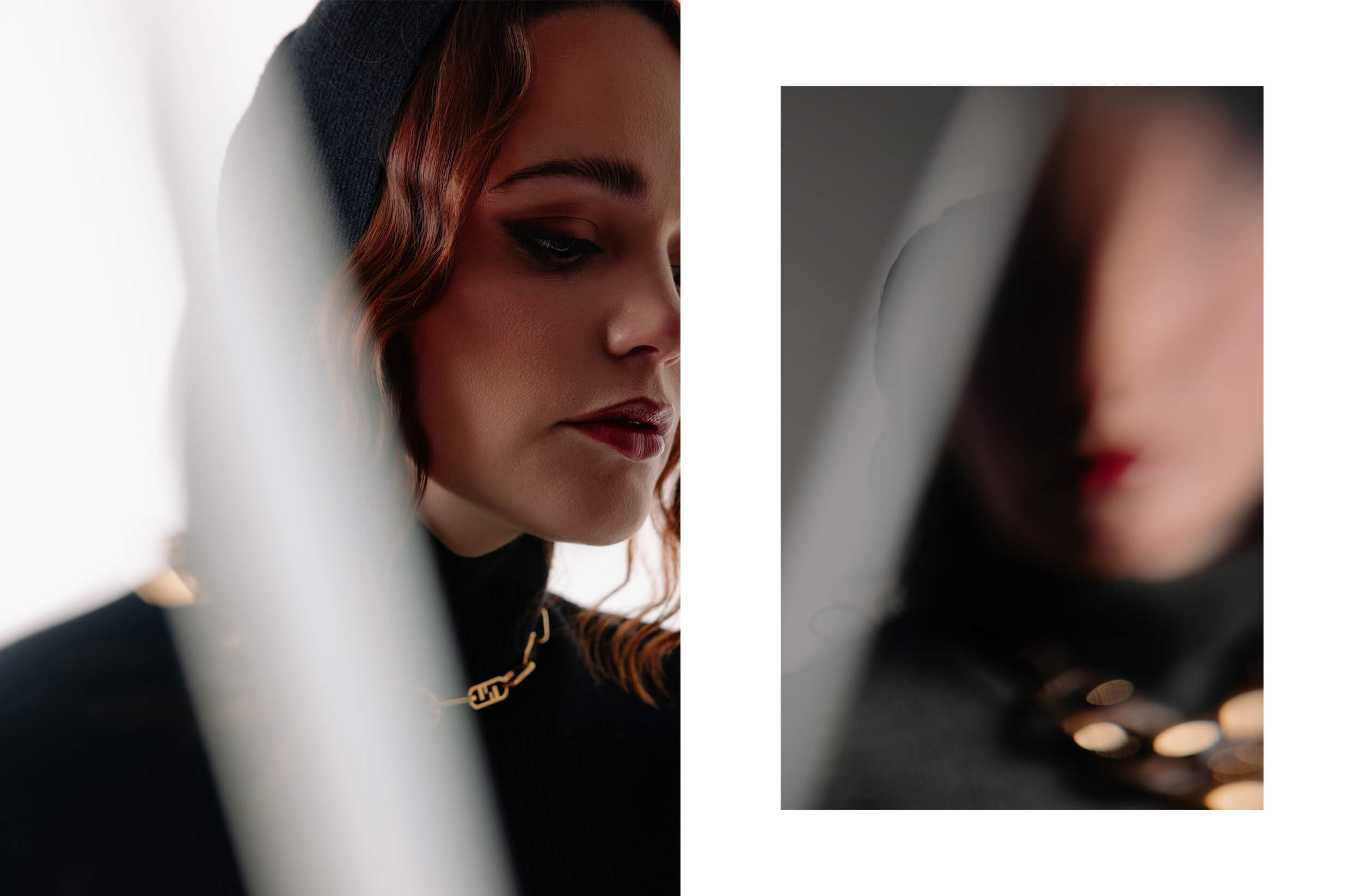“M. Son of the Century” by Joe Wright is a challenging series: the theme, the historical period, the protagonist. But above all, it is a necessary series. It is frustrating, sad, profound, a warning: not to succumb to resignation so that the revolutionary act of change reminds us to be better, both for ourselves and for those around us and our society.
A challenging series, especially for those who stepped into the characters’ shoes and had to learn to alternate empathy with disgust: a challenge that required the utmost effort, as Benedetta Cimatti, who plays Rachele Mussolini, told us. A woman who was, in her own way, a dictator, full of nuances and conflicting emotions, even in her relationship with her husband, Benito. Benedetta took us by the hand, just as Joe Wright did in directing her, and guided us through the discovery of a set and an acting job filled with dedication, awareness, sensitivity, and complicity. But also with a lot of music and humanity, the same humanity to which the series appeals to create a moment of strong reflection, where hope must never be missing. Ever.
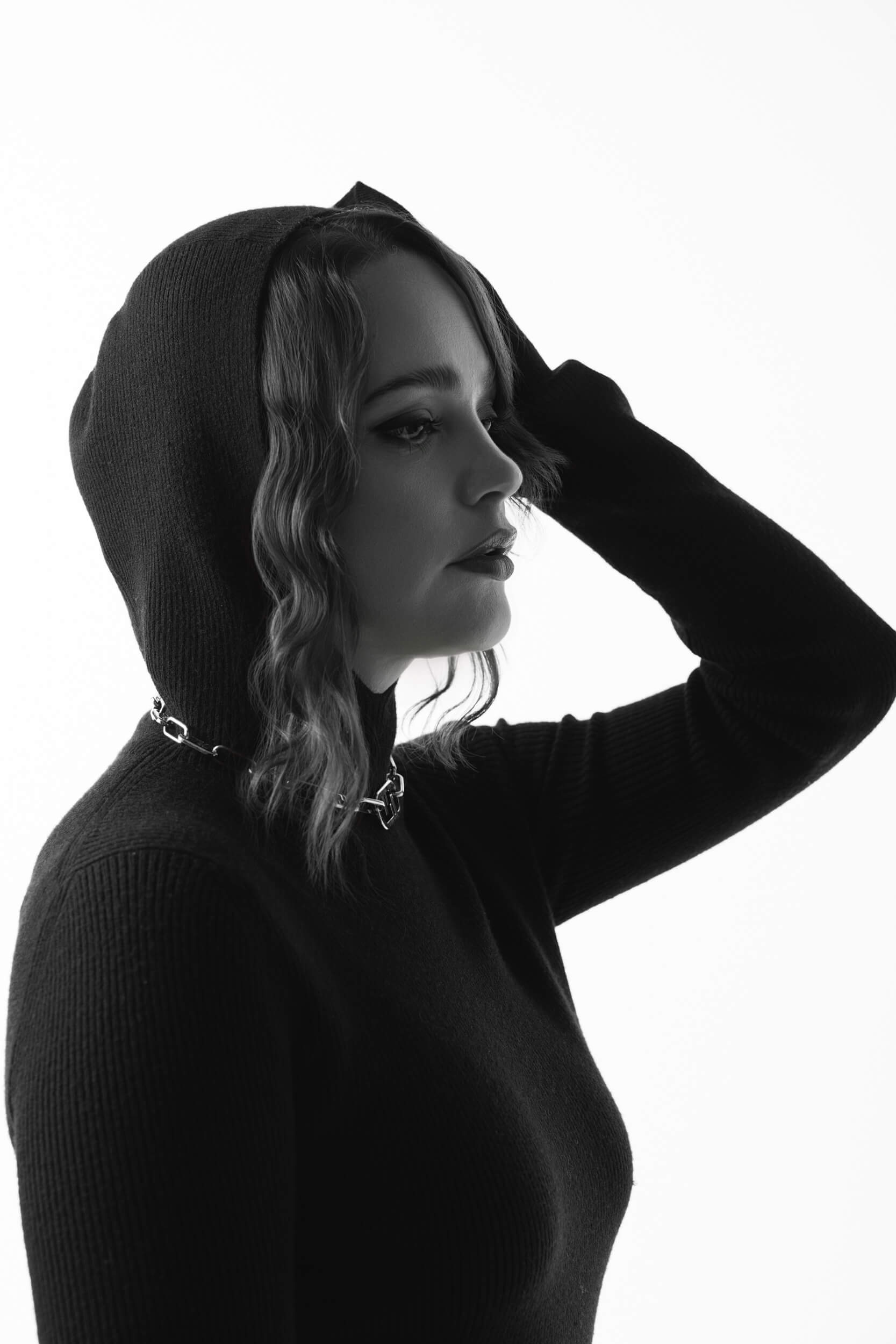
What is your first memory related to cinema?
My first memory is when I watched “The Last of the Mohicans,” a film my father was very fond of. Dad was obsessed with it back then, he watched it often. I remember wanting to get closer to him, which made me curious to watch it too, and I tried to replicate a scene that stuck with me. It was the first time I realized I wanted to become an actress. Indeed, all my cinema-related memories are of films I watched with my father, even when my mother scolded me for needing to go to bed. I would watch those films when he came home late from work, then sneak into my room and re-enact the scenes in front of the mirror.
Which scene did you re-enact?
A very sad scene, where the sister in love throws herself off because her beloved is killed. I would try to replicate this incredibly dramatic scene on my bed [laughs].
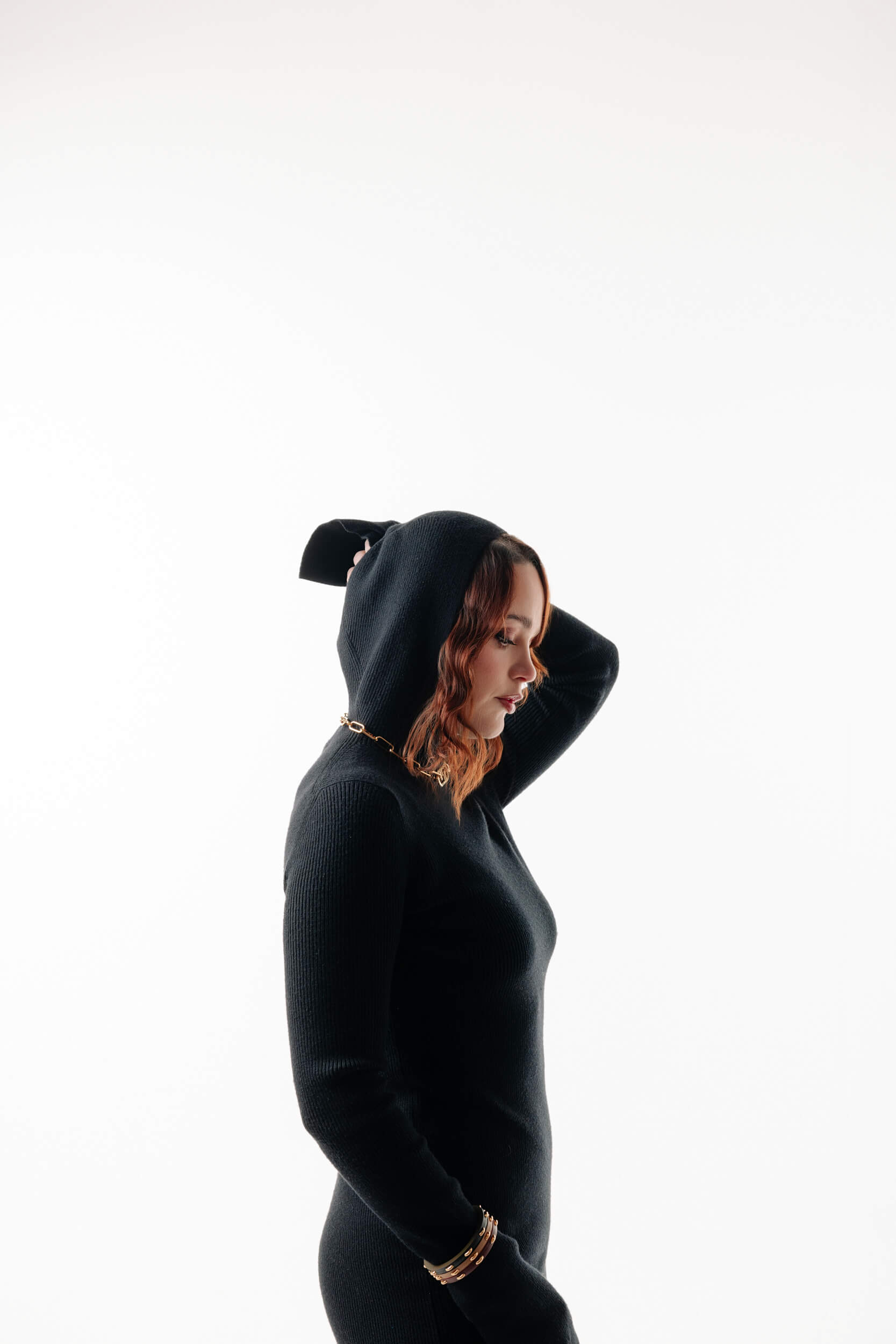
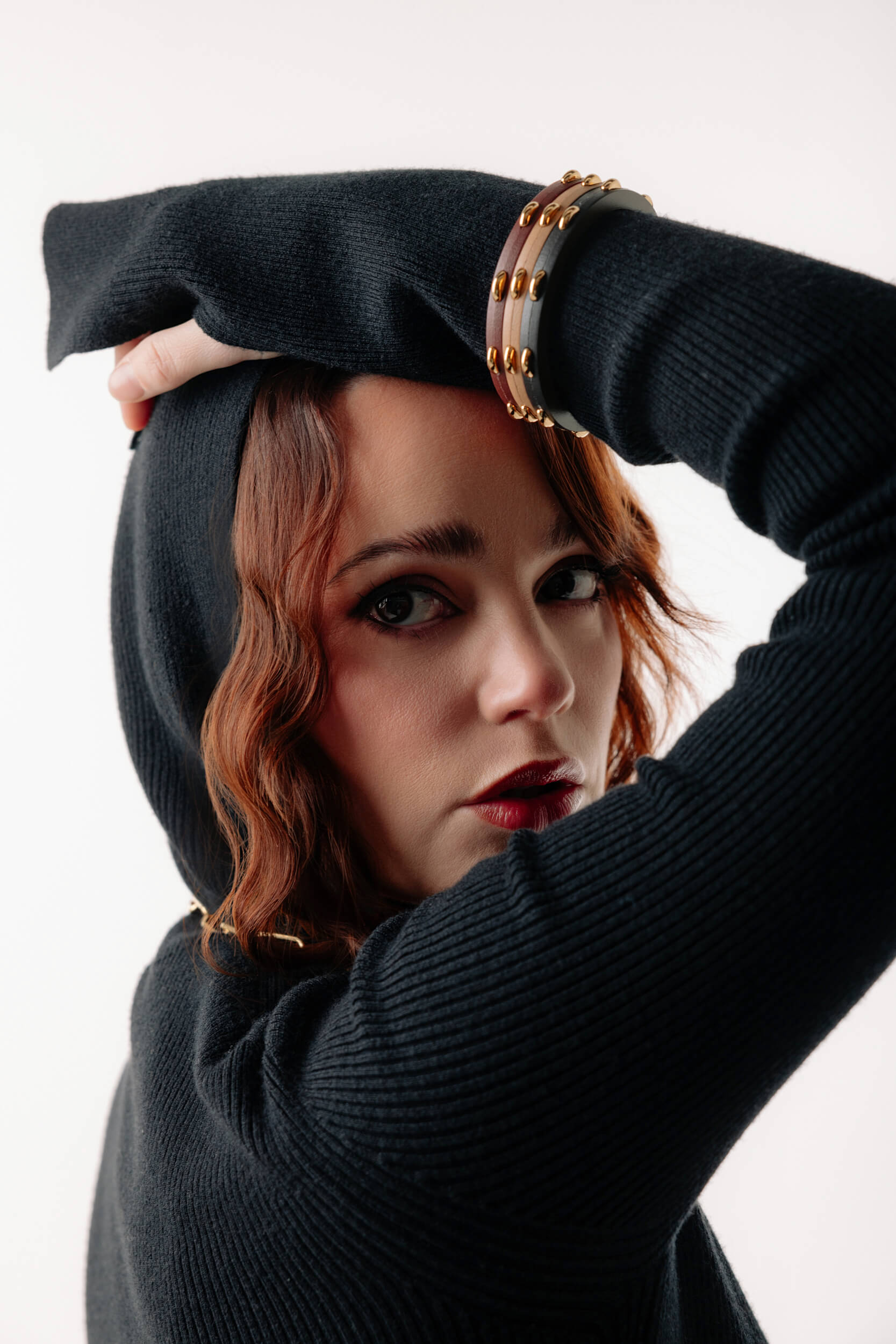
“M. Son of the Century” is a historical production, but it’s also an awareness of a past that still resonates in the present. What was your first reaction when you read the script? Had you read Antonio Scurati’s book before the production?
When I read the script, my first reaction was, “Wow, now it’s my turn,” meaning I was given the opportunity to work with the greats, and it was up to me to deliver my best. It was a mix of indescribable joy and overwhelming anxiety about not being up to the task. I was asked for the utmost effort, and I am very happy with the work I managed to do, obviously thanks to everyone’s help.
I had the chance to read Scurati’s book during filming, and it was a great inspiration. Rachele’s character was built much more deeply in the script, thanks to Joe Wright’s genius, who had very clear ideas about her. I was struck by the script’s choice of a “grotesque” key, different from the book, which excited and stimulated me even more. Throughout the series, there is a “game” that repeats itself, alternating moments of empathy with the characters with moments of total disgust: in some scenes, you almost want to laugh, and then in the next scene, you’re slapped in the face.
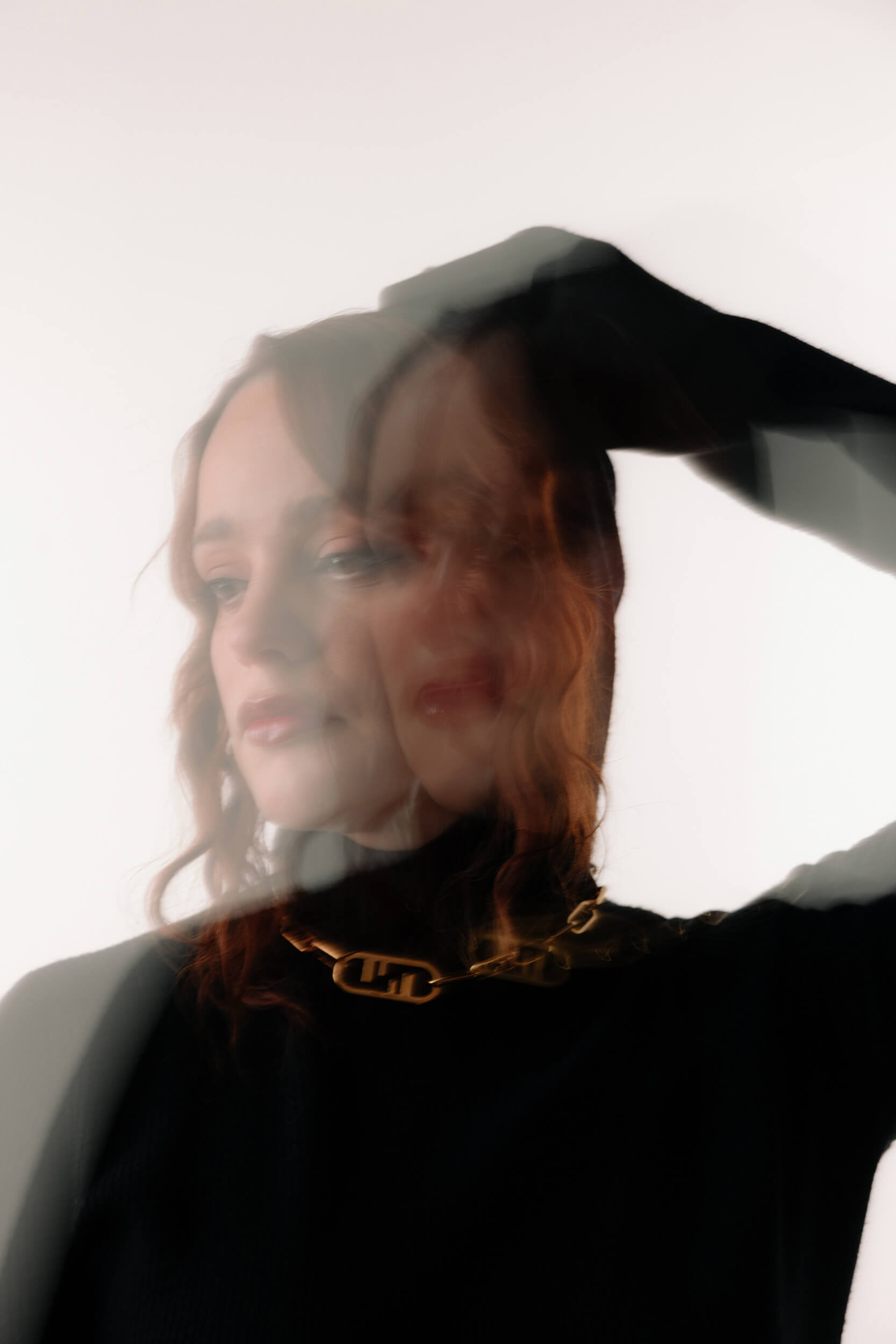
“Throughout the series, there is a ‘game’ that repeats itself, alternating moments of empathy with the characters with moments of total disgust”
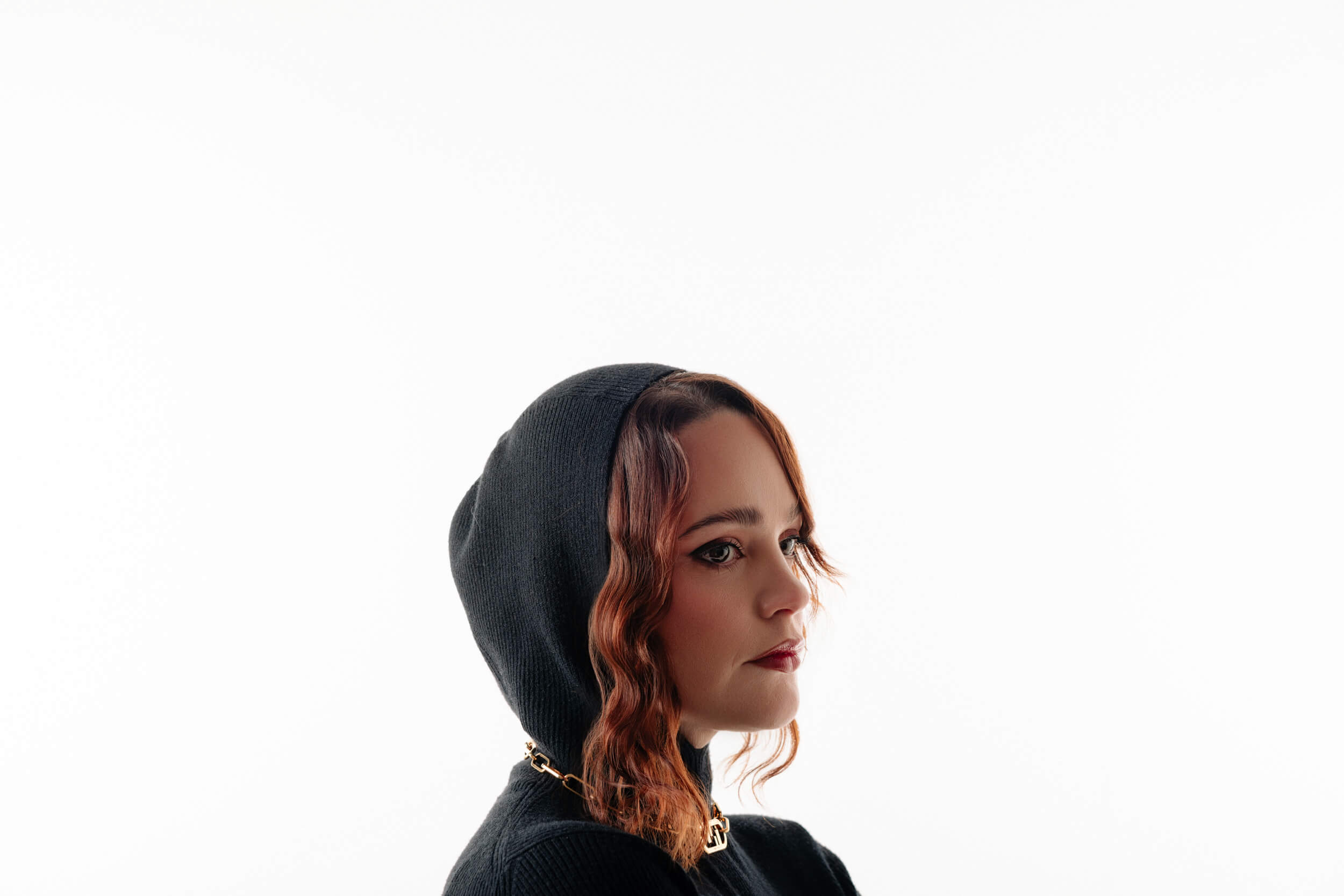
Joe Wright is a director who has shown, throughout his career, a unique way of handling historical and literary material. What was it like being directed by him on set?
It was an incredible experience. Sometimes, when people ask me, I struggle to find the words. Words make it a bit complicated to describe the emotions you live, the feelings you experience, but it was a job that stimulated and enriched me personally because Joe is a genius. The word “genius” is often misused, but Joe Wright truly is one; there’s no other way to put it. The attention, dedication he had for all the details, the way he directed us, his generosity—despite being the number one—in sharing his skills, talent, and creativity to create a grand collective work. This enriched me immensely, not just professionally but also humanly because I felt seen, recognized, directed, and accompanied every time, even in moments of doubt, and constantly motivated to do better.
When you find a director who holds your hand like that, you can’t help but be grateful.
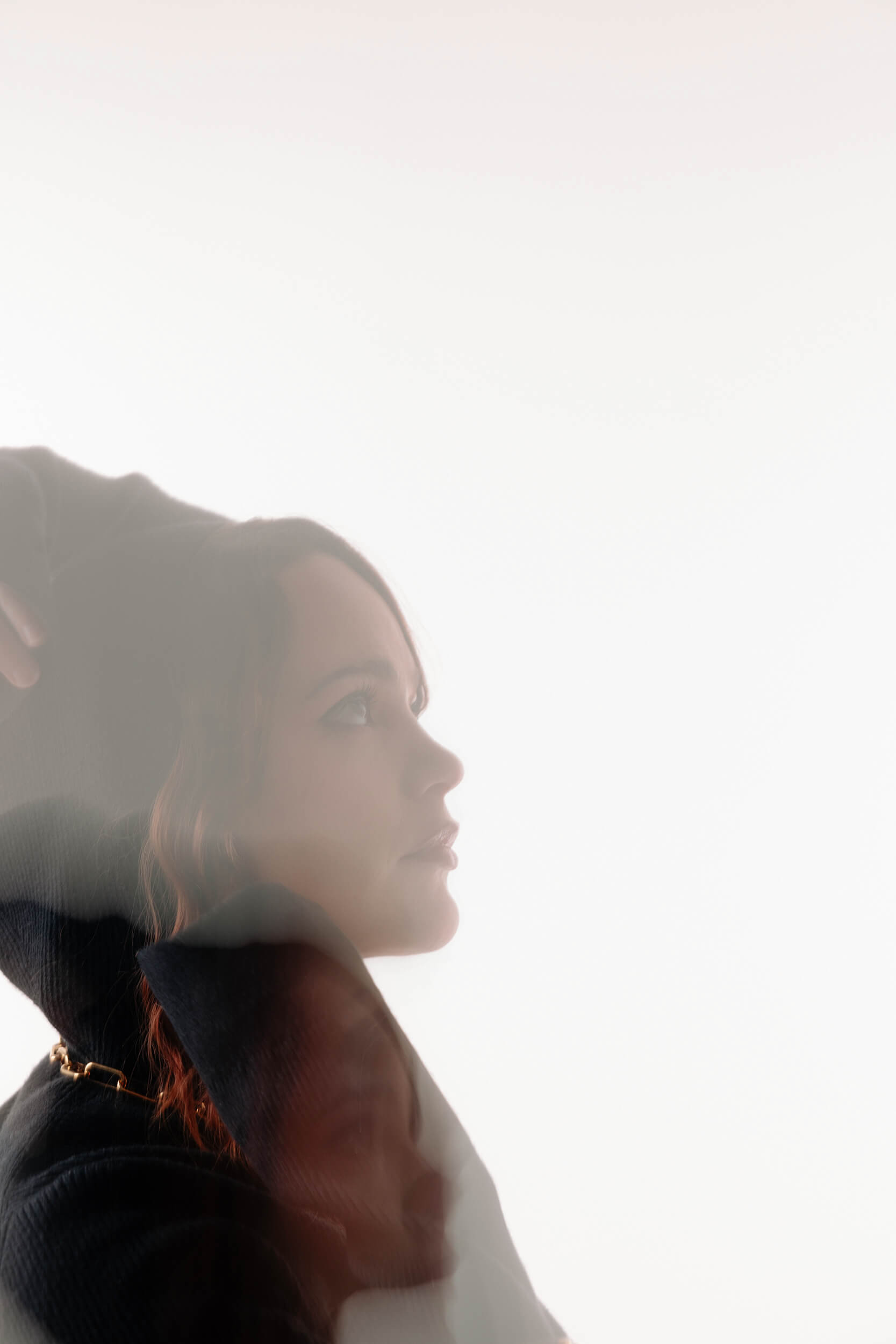
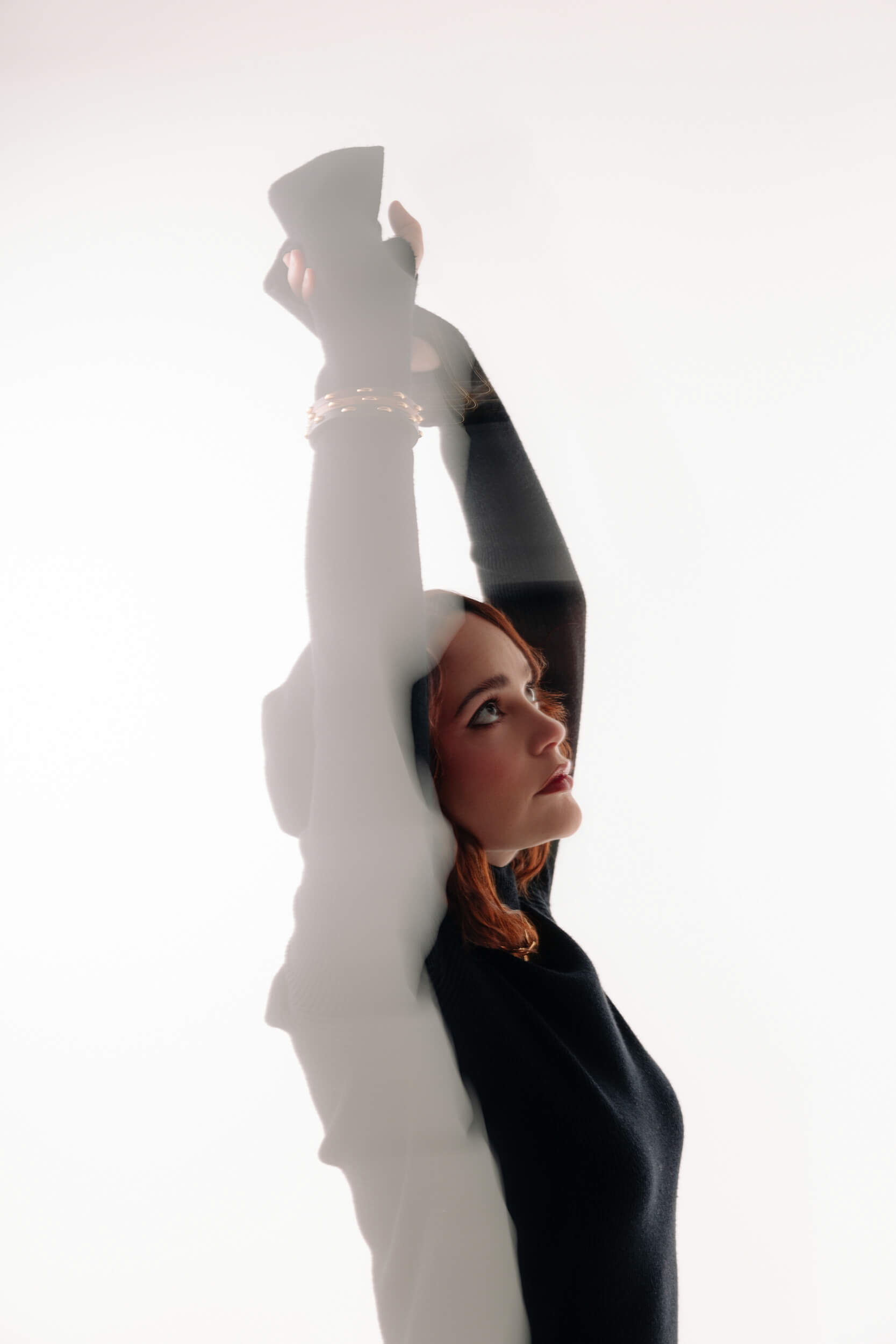
It shows in the final work.
As you mentioned, you play Rachele Guidi, Mussolini’s companion, who always saw in her a safe haven and an image of those family principles promoted by fascism. What approach and work, especially emotional, was necessary to step into her shoes?
You’ve used the right words. For me, the starting point was to free myself from the prejudice I could have had towards my character, woman to woman. Inevitably, you ask yourself questions, you wonder “how is it possible,” and you have your own opinion concerning such an important and violent piece of history; I wanted to get rid of all that and return her humanity without judging her, trying to bring out her fragility and nuances. I went from a certain initial anger to a deep pity for this woman who, as you said, represented the ideal woman of the time: wife, mother, devoted solely to the family environment.
It was a very challenging work of identification because you are interpreting a historical period that is, in some respects, far from us but, in others, not so far. Playing a real woman was also very complicated, trying to immerse myself fully in her life. However, the direction we chose, even with Luca [Marinelli], helped a lot to create the dynamic of everyday life between me and him, of the Romagna origins of our characters.
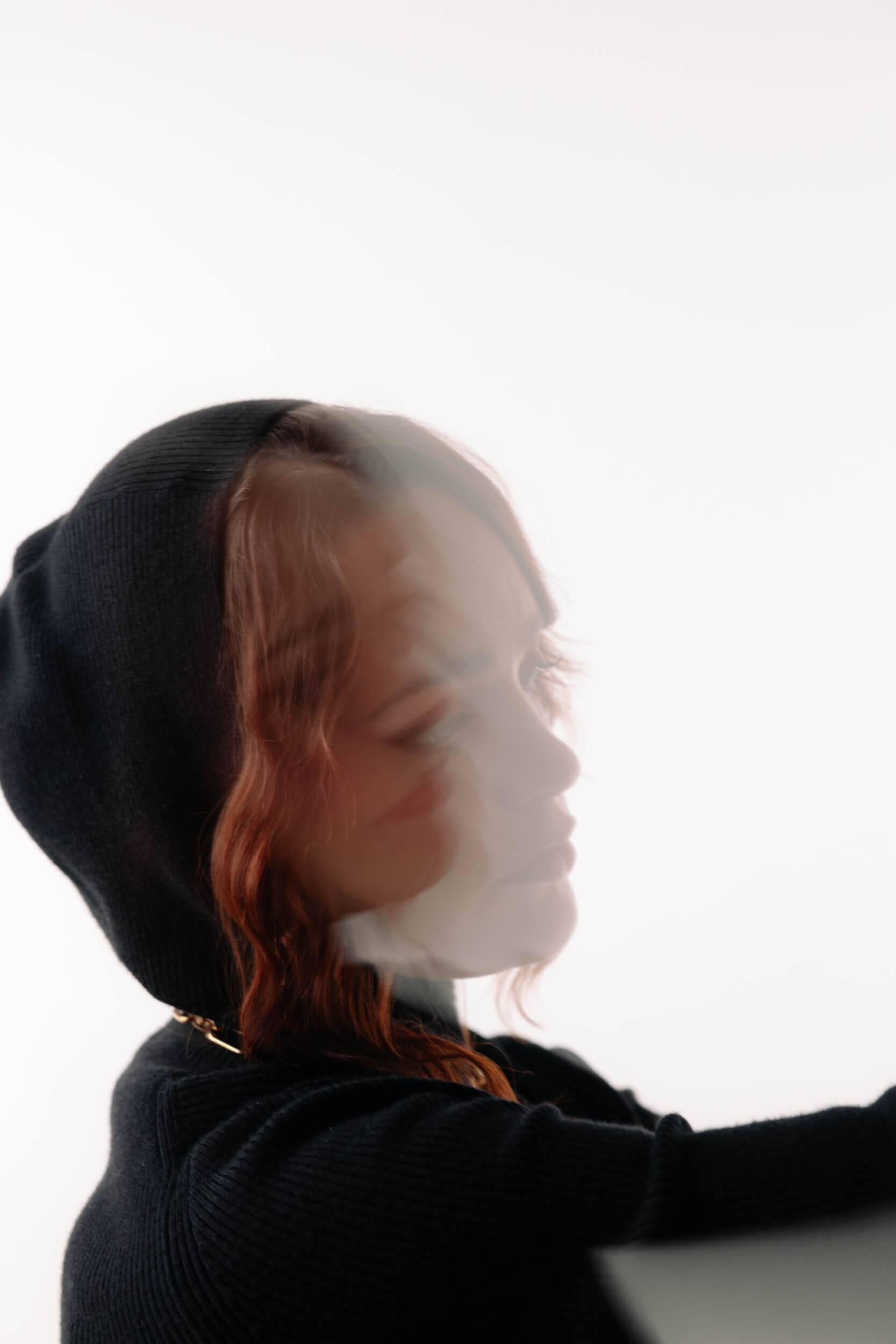
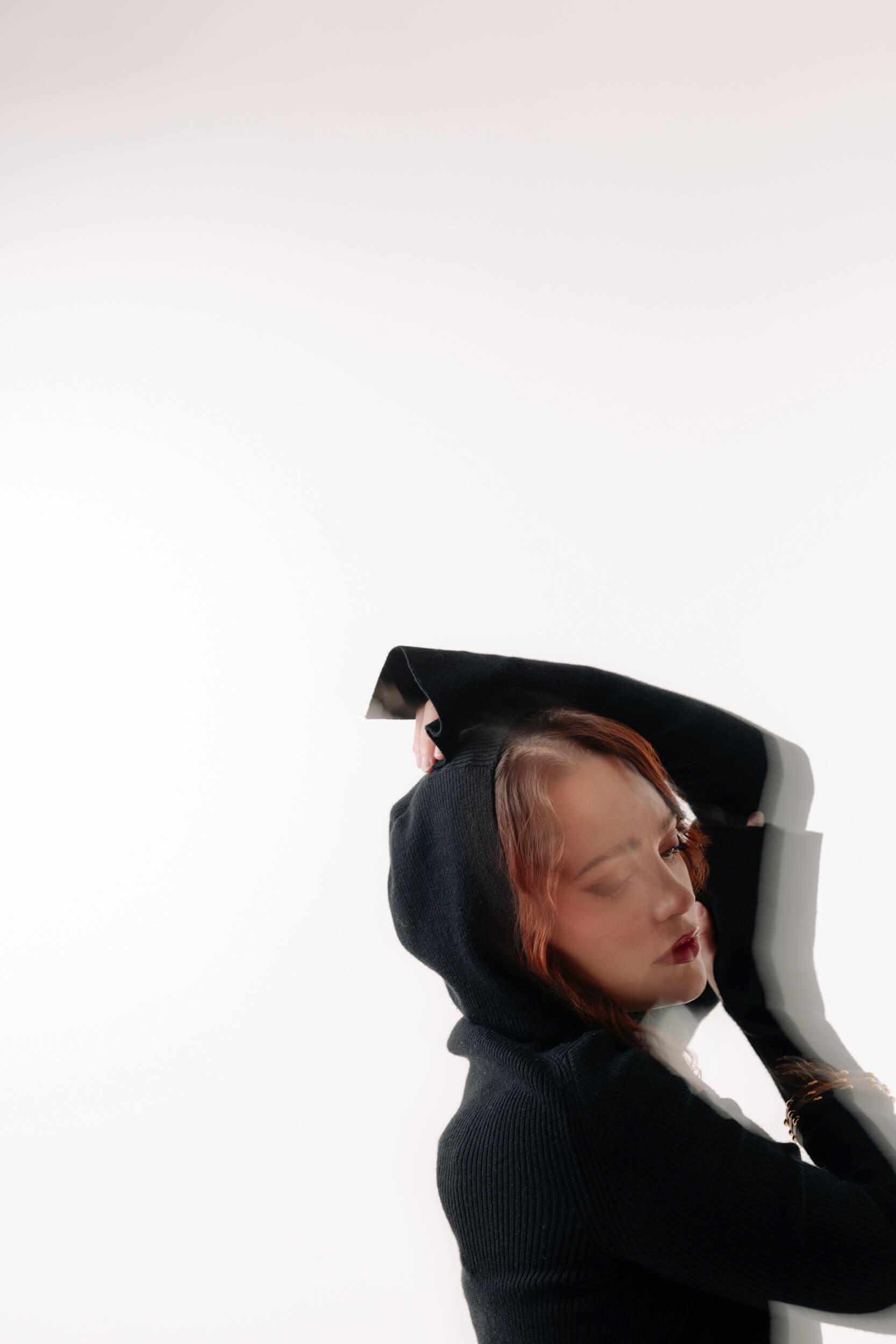
“Inevitably, you ask yourself questions, you wonder ‘how is it possible,’ and you have your own opinion concerning such an important and violent piece of history”
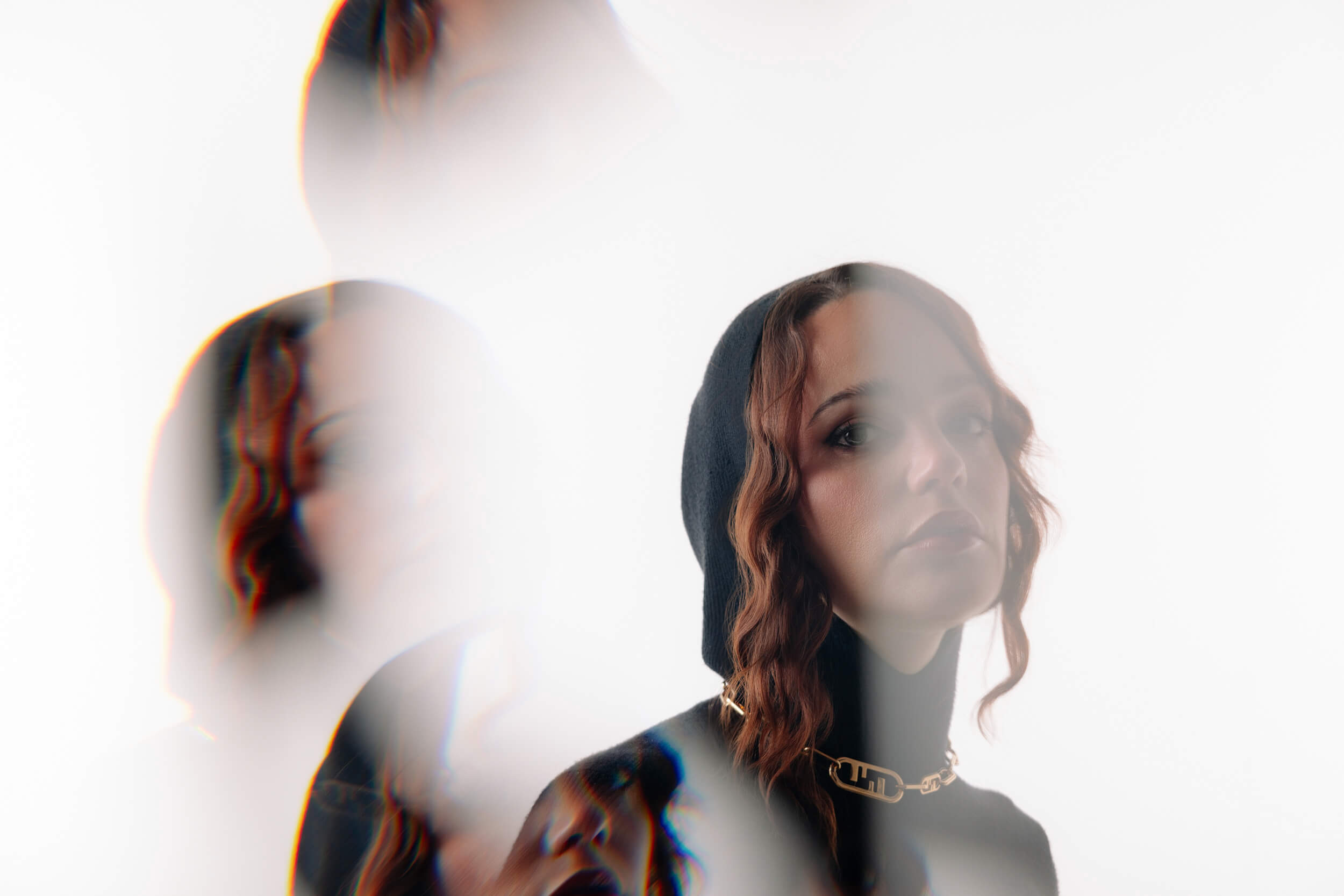
Speaking of which, how was the relationship with Luca Marinelli’s Benito Mussolini constructed, given it is a very intense and difficult relationship?
First of all, I will eternally thank Luca Marinelli because he made everything very easy: besides being a phenomenal actor, constantly listening and not self-centered, with boundless generosity, he is an amazing person humanly. This greatly helped in the most intense and focused scenes, in representing the sick relationship between Benito and Rachele, which I defined as “victim-perpetrator,” a relationship of pathological need. Thanks to Luca, we managed to bring light moments to the set, finding ourselves even after horrifying scenes. At some point, hysteria also emerged in unloading emotions: scenes often ended with laughter, moments of freedom that I will remember forever, moments of saying,
“Thank goodness we’re not living all this.”
From the beginning, Luca was a fundamental presence for me, making the interpretation very natural: from when we started rehearsing, we immediately created a connection, listened to each other, followed each other a lot, and Luca was brilliant even with the dialect. During rehearsals, we also did a lot of physical work, considering the importance of the violence inherent in the character that emerges from the physicality.
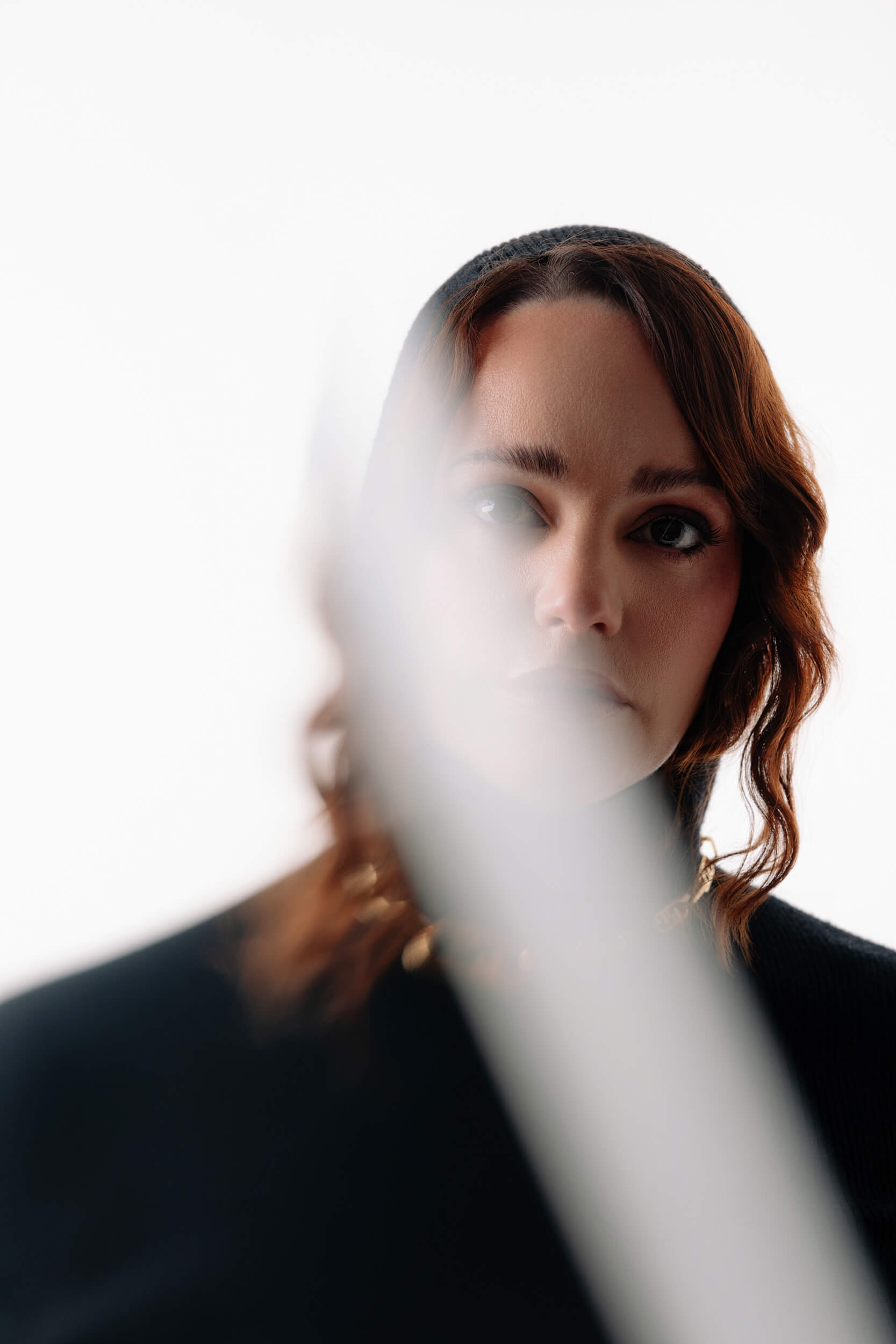
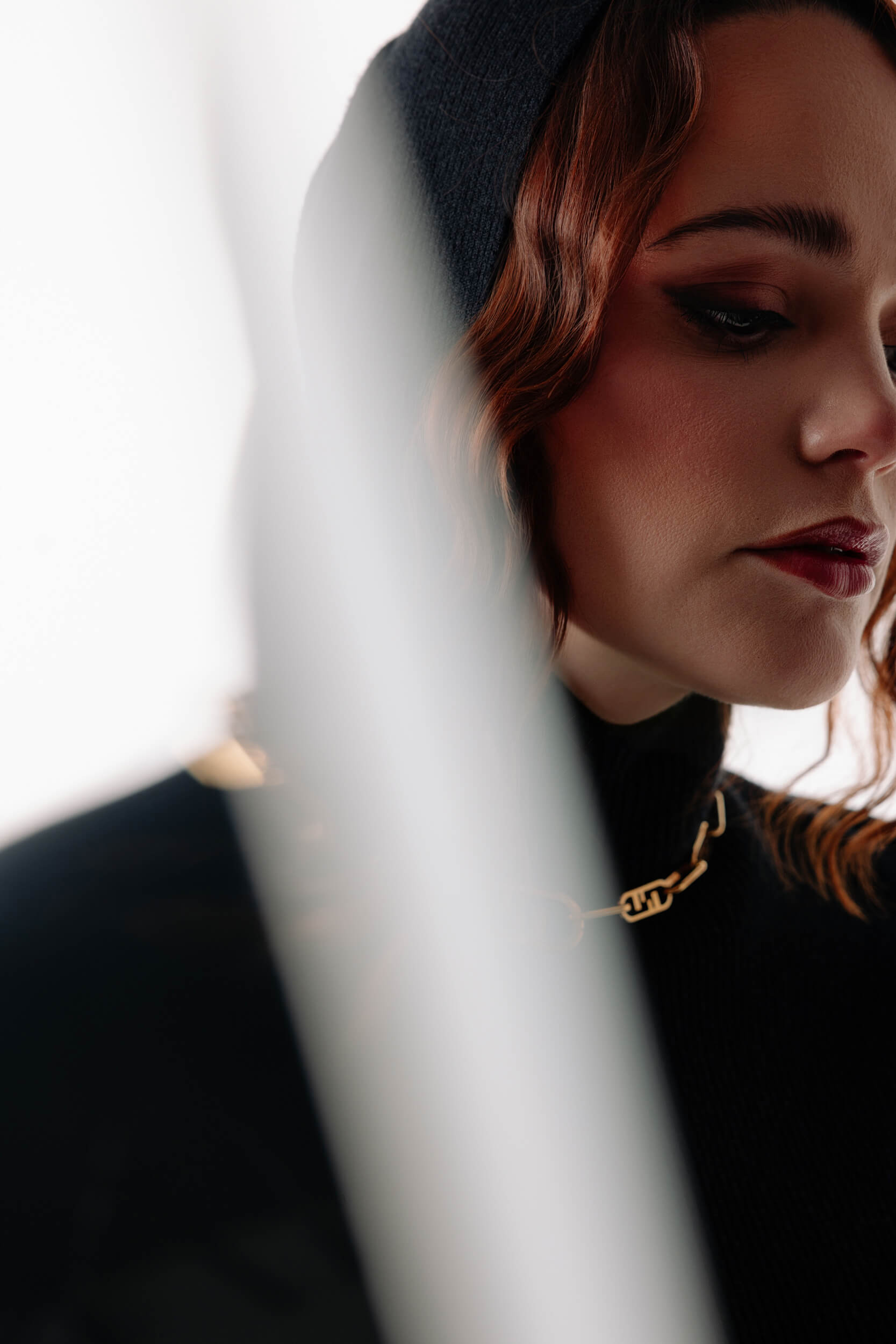
I imagine it was necessary to reserve light moments to reconnect, to detach from what you were interpreting.
It is essential, also because it’s a discourse that often doesn’t emerge, yet it’s the most difficult part of our work, made of continuous separations from the character you enter. If you don’t separate, it becomes very risky; there are indeed various examples of actors who lost their minds because they didn’t exit their characters. Living characters and situations like ours could become detrimental, but luckily, in my case, when we exited the character, it was me and Luca, and thus a great friendship and moments of complicity were born, which helped a lot.
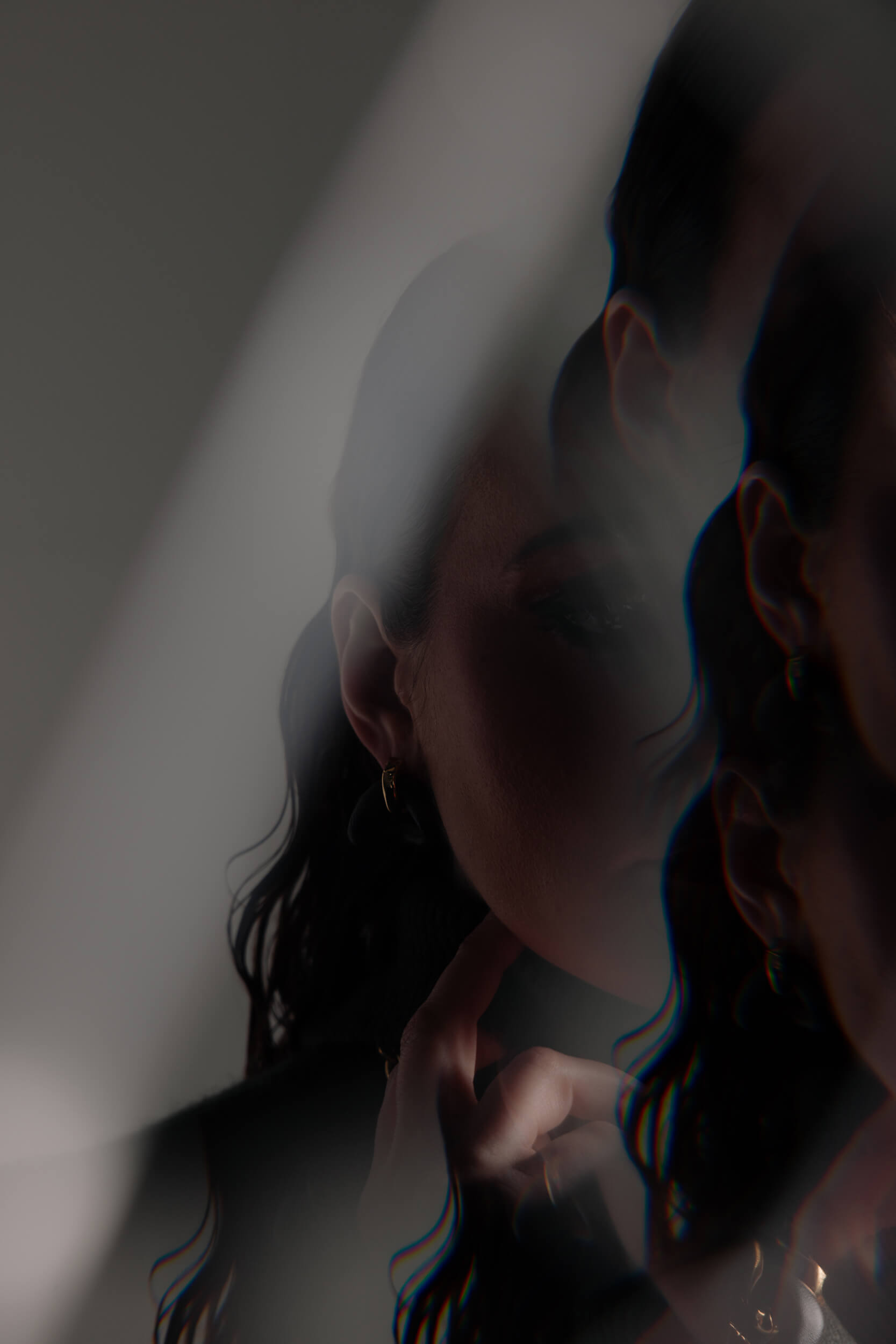
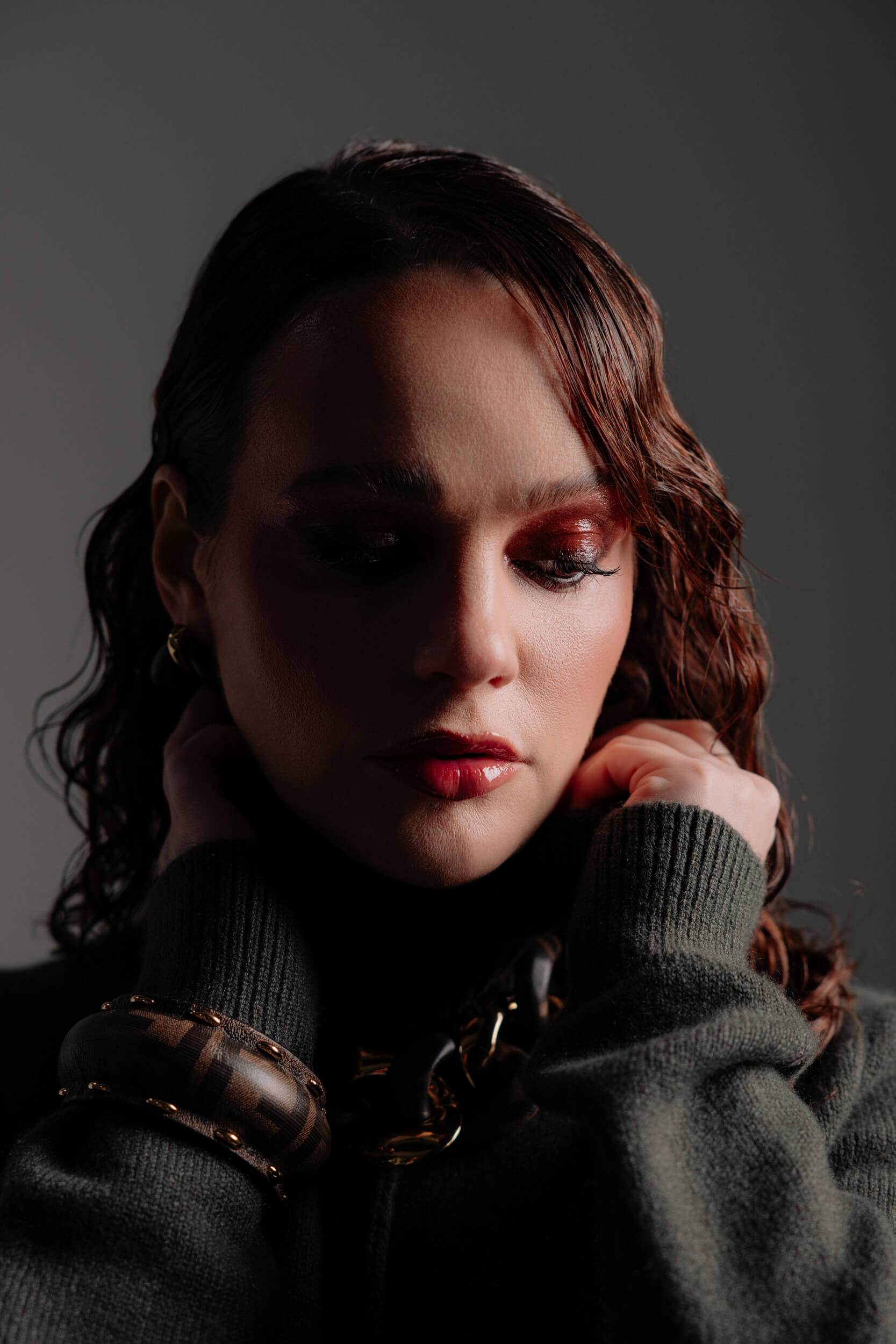
Was there an aspect of Rachele that you discovered and that particularly struck or surprised you?
One thinks they have studied and know everything about history, but then comes the moment when you realize your ignorance. I am grateful to this series because it made me discover fundamental things. Regarding her relationship with him, I always knew her as a victim, but through her daughter’s statements, I discovered that she was “the real dictator at home.” In particular, with her daughter Edda, Rachele had an authoritarian and very violent relationship, an aspect that struck me because I didn’t imagine that she also “commanded.” It’s as if the frustration she felt was poured out violently on her children.
The house was perhaps the only environment where she felt legitimized to show herself as “strong,” as if it was her kingdom.
Yes, exactly, it was the only environment where she could bring out her dimension.
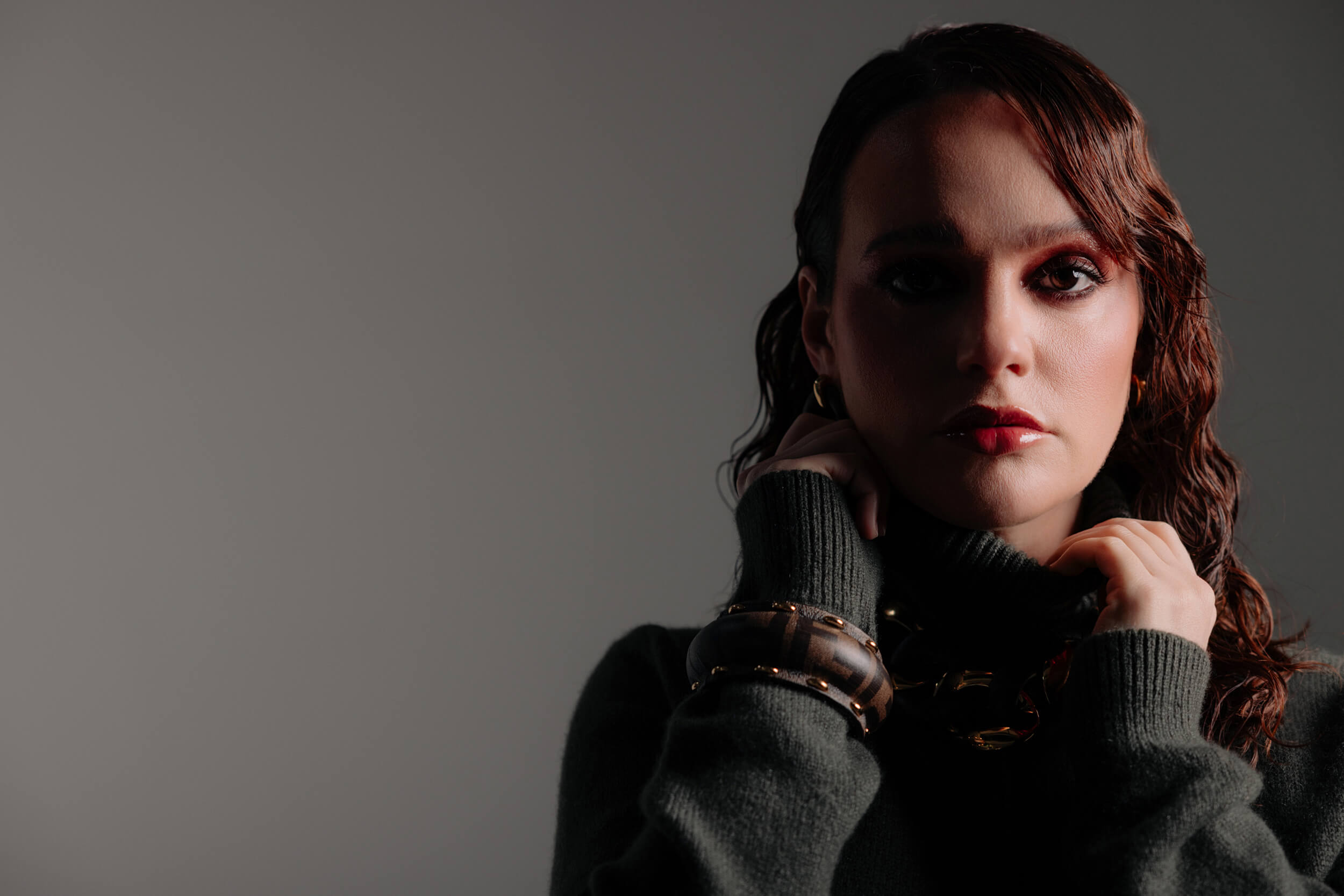
“The real dictator at home”
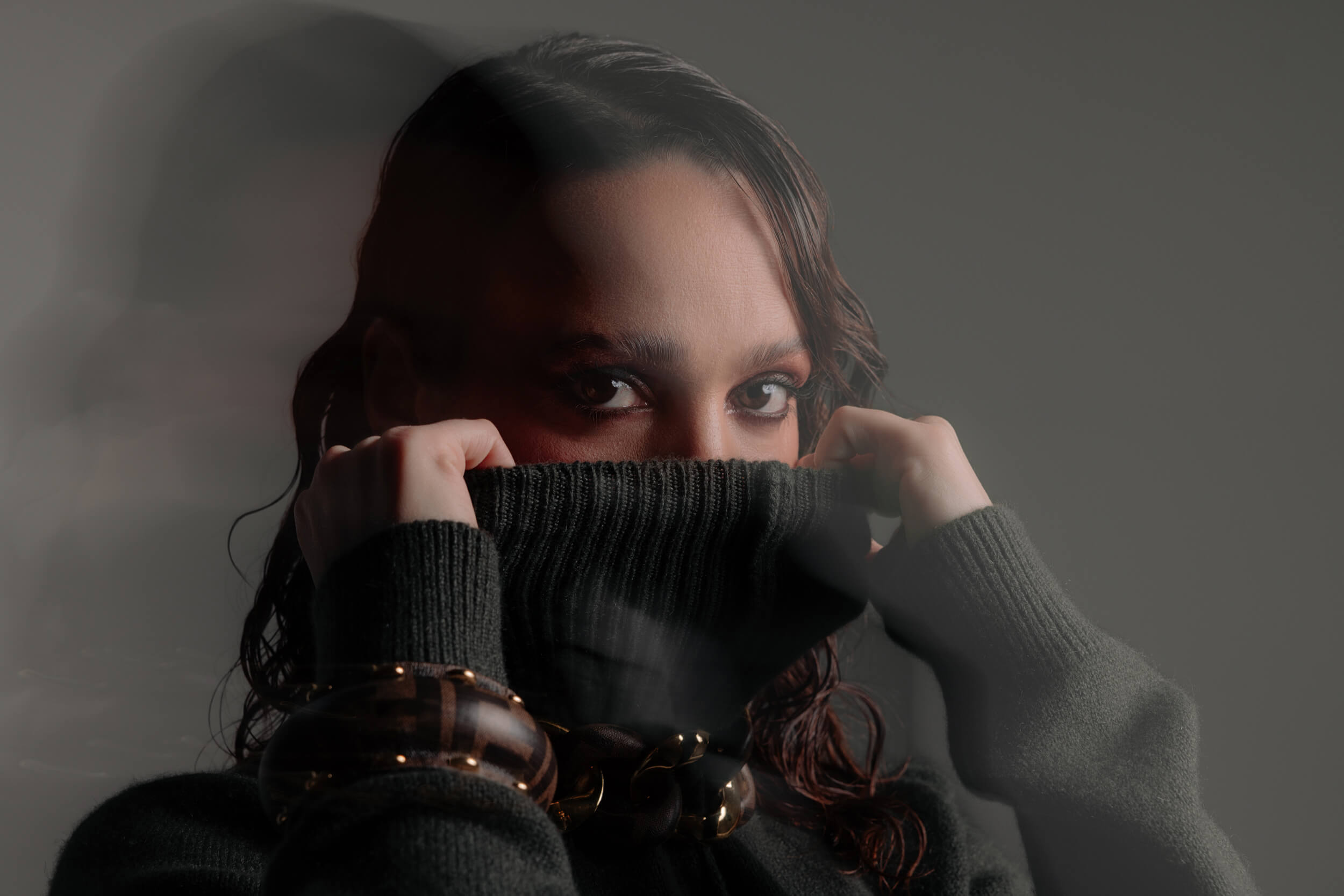
Another more or less silent protagonist of the series is Italy itself, which allowed itself to be charmed by Mussolini to the point of making him the Duce. What was it like immersing yourself in that setting, in that tense atmosphere in desperate search of change/improvement?
It was very frustrating and sad to retrace that piece of history.
The series is also clearly very “male,” considering that all the characters revolving around Mussolini are men, but I focused a lot on the female image, tough to read, and it was sad to recognize that I don’t see a total difference compared to now. Of course, now we have many more opportunities and rights, but fundamentally, regarding how the female image is perceived by men, we haven’t made this great revolution. I felt deep sadness, but never resignation; rather, it was a stimulus to think that we women should work on an image that is completely different. However, when you retrace certain dynamics, you cannot remain indifferent.
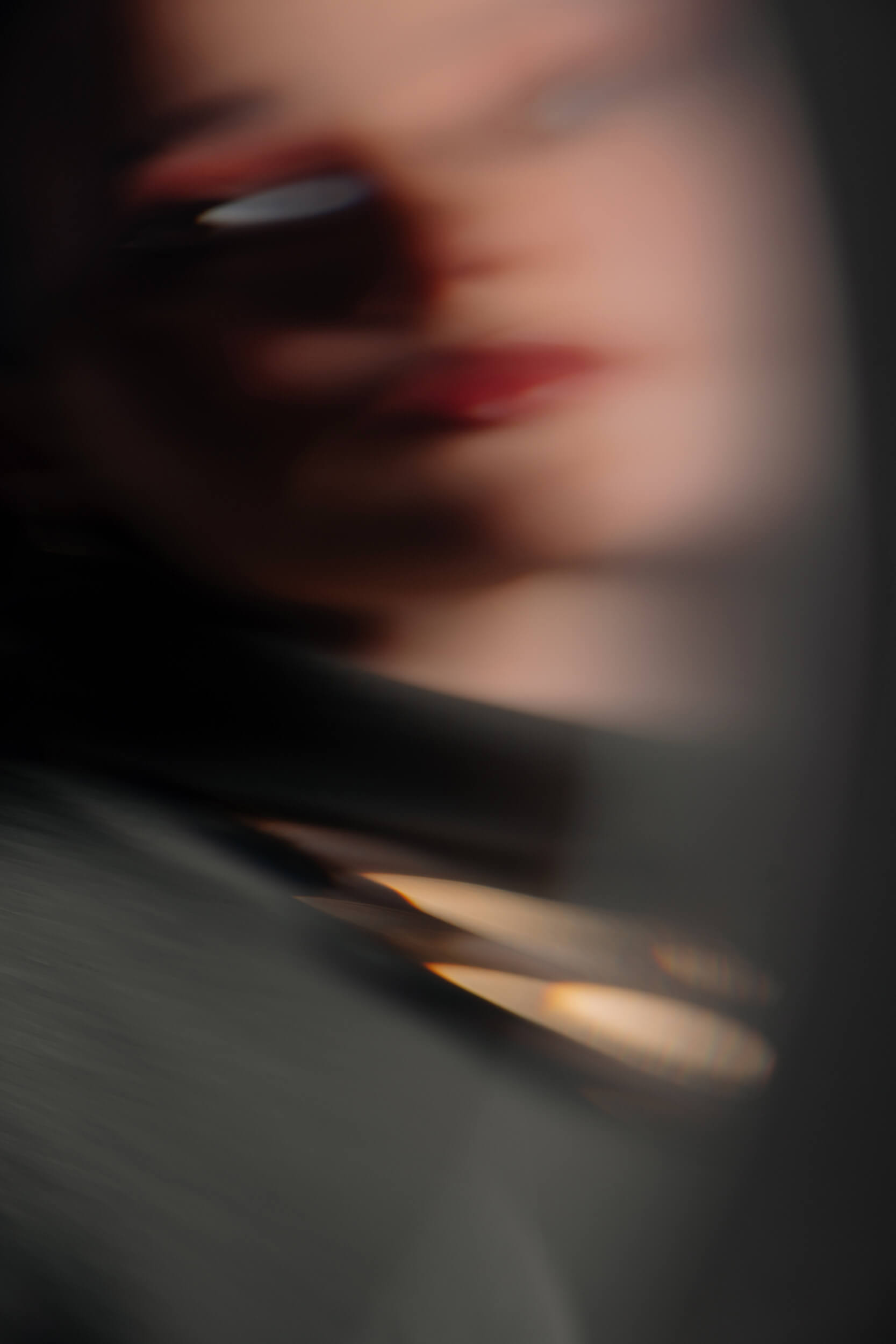
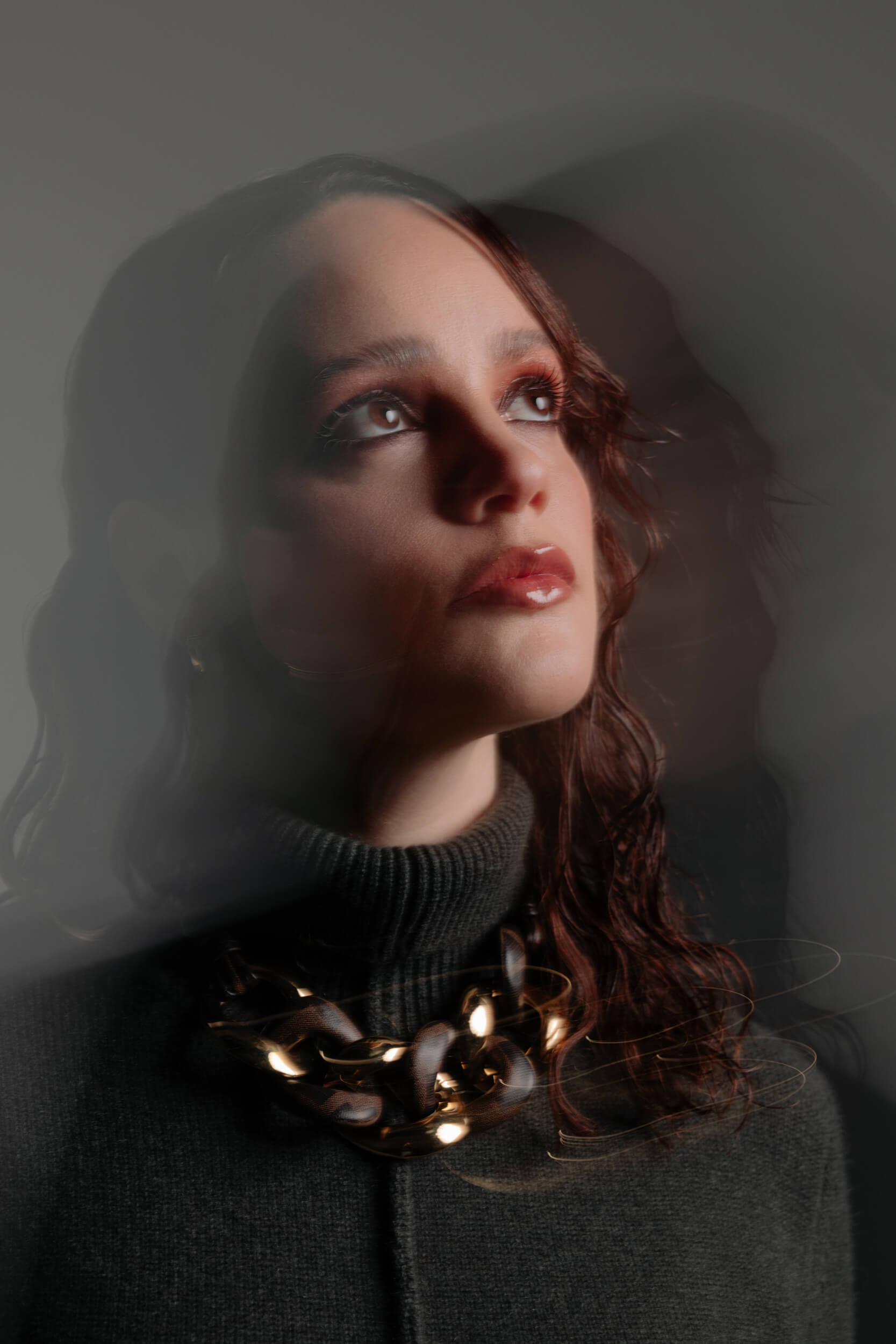
Is that the message you hope the audience takes away from this series?
I hope so. I expect this series to make people reflect.
I don’t expect it to make the most obtuse and less thoughtful reflect, but those who don’t know much and have never thought they could have a different thought. I expect the series to be seen “in the right direction” and that it can provoke reflections.
Regarding the image of women, I hope the series teaches that if you have a spark of hope and self-love inside, there can be your revolution, even if it is internal and very personal.
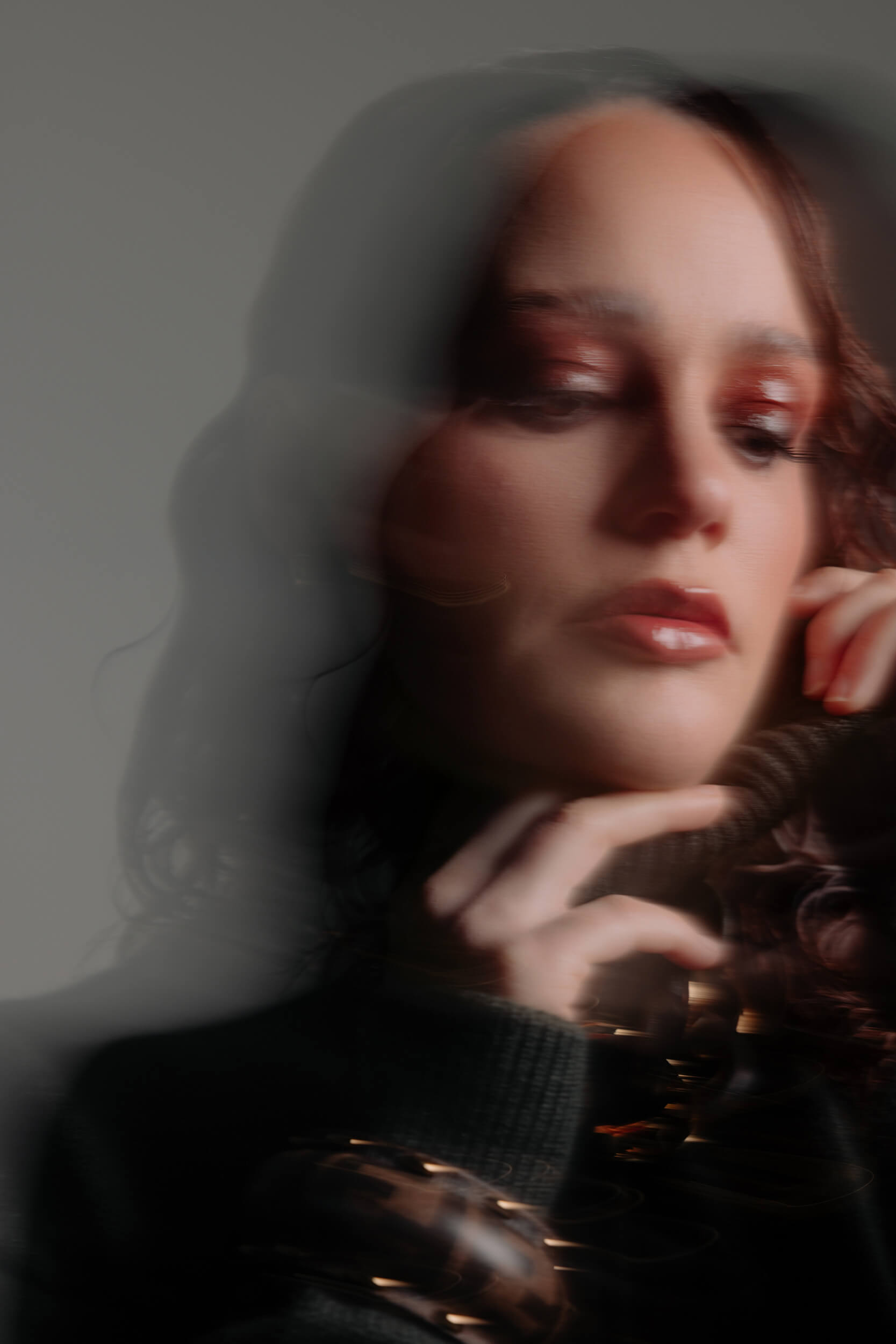
The soundtrack is composed by Tom Rowlands, a member of The Chemical Brothers: what song would you use to describe the experience on the series set?
Music, among other things, was a fundamental element for us on set because Joe Wright kept playing songs continuously, with completely different playlists that he alternated. During the first scene I shot, I entered a church with loud electronic music, and it was wonderful.
A song to describe Rachele and the experience on set… I would say “Metamorphosis One” by Philip Glass, where the high notes, like her voice trying to be heard, are trampled by the low notes, like his voice overpowering her. It’s perfect for its pauses, the absence, and the resumption of a rhythm that always repeats itself as if nothing happened, as if nothing can really change.
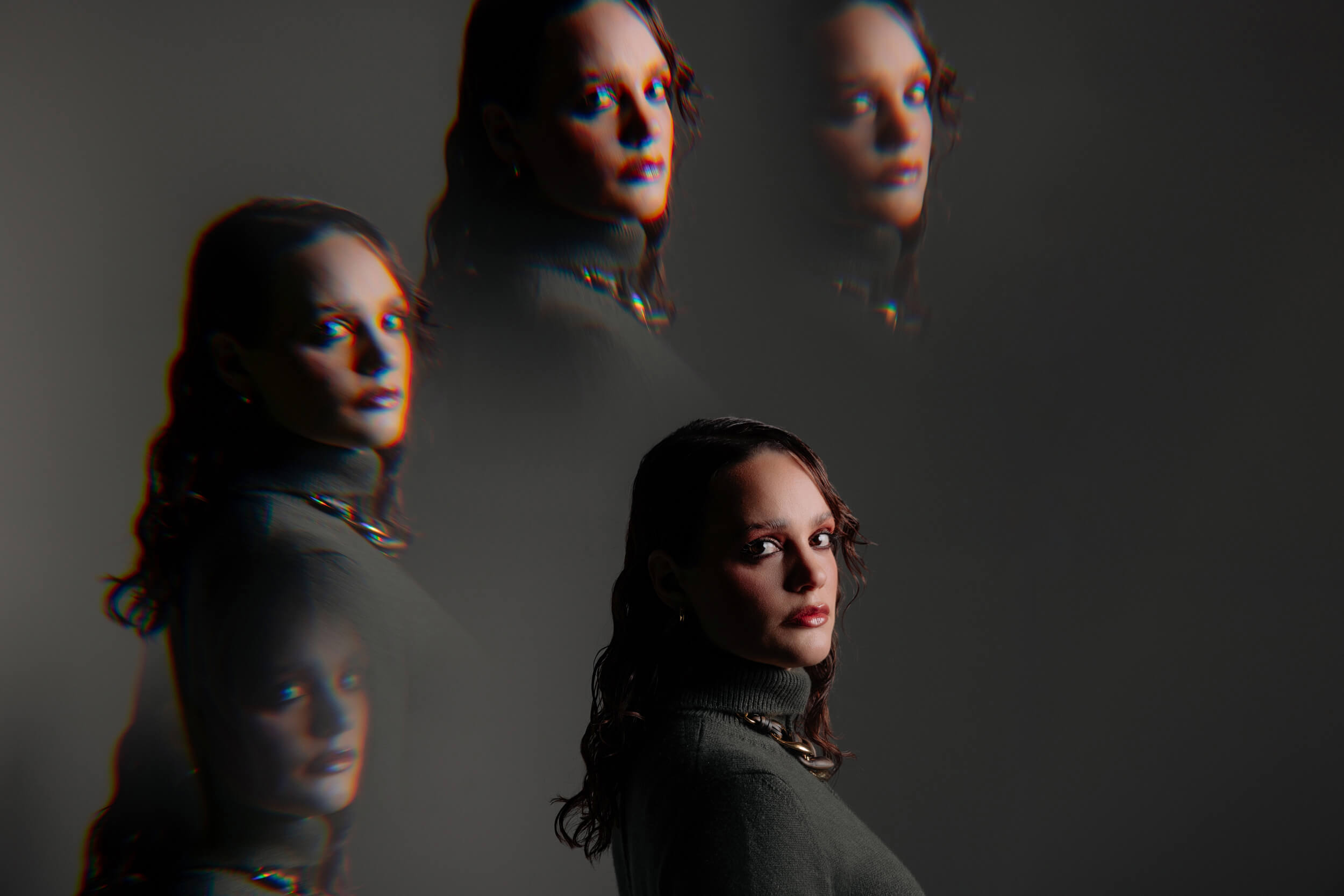
What is the last thing you discovered about yourself thanks to your work?
I discovered a resilience I didn’t think I had. One of the last things I realized about myself is precisely this, and I’m not talking about “physical” resilience, but rather the ability to withstand what happens in life, the most unpleasant situations, and even personal crises I thought I didn’t have the strength to react to. Resilience and reactivity, that’s what I discovered in myself.
What has been your greatest act of rebellion so far?
Perhaps my greatest act of rebellion was stopping pretending to be someone I wasn’t. I realized that for many years, based on disappointments and the fear of not having the resilience and reactivity we talked about earlier, I had built a kind of comfort zone where I had to do things a certain way and everything had to go a certain way. But that wasn’t reality. So, my greatest rebellion was to say: “No, now I have to put myself out there for who I am, without being afraid to show sides of me that are not so perfect and beautiful and that maybe many people won’t like.
Screw it, I have to like myself.
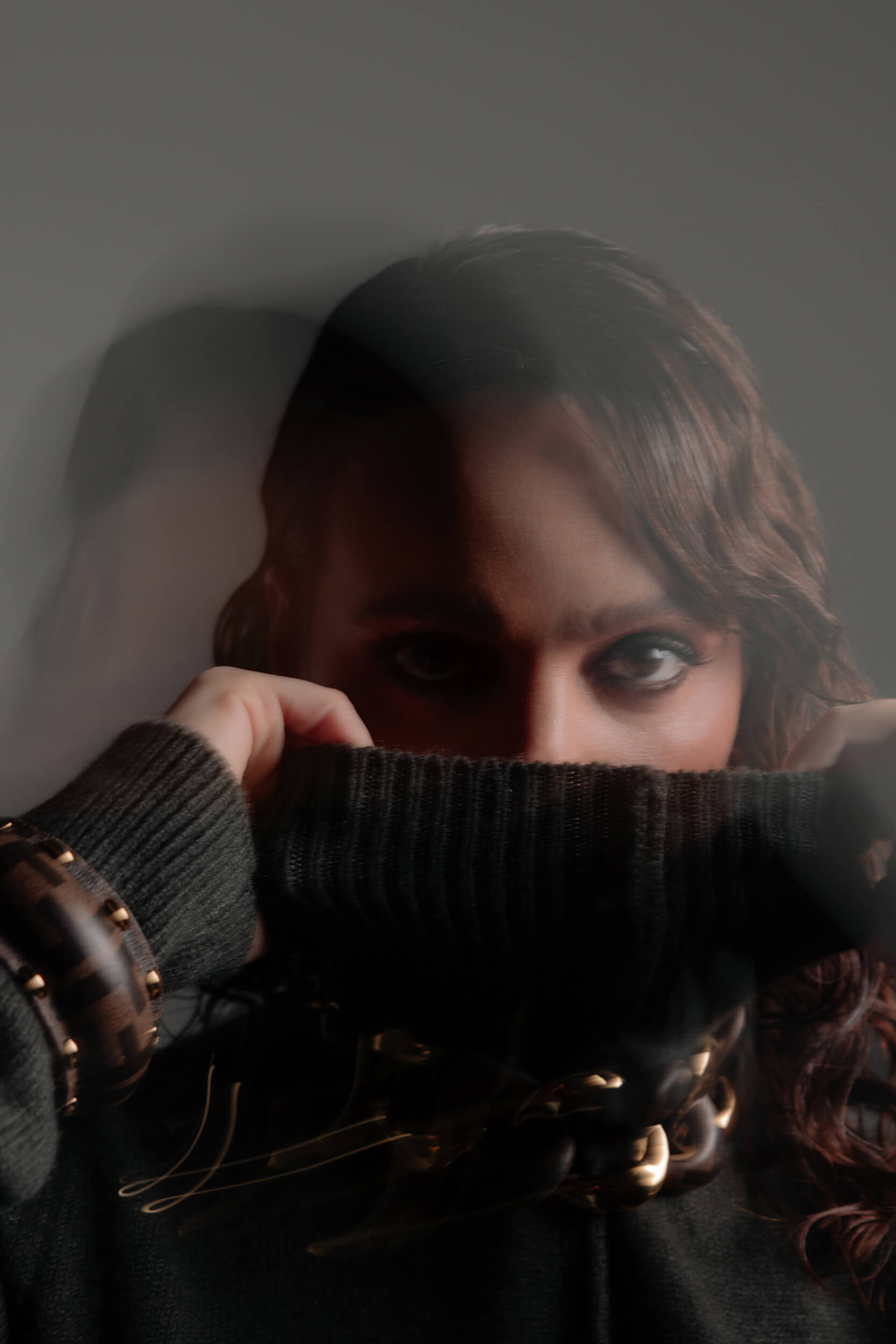
What does it mean to you to feel comfortable in your skin?
Feeling comfortable in my skin means above all becoming aware of my sensitivity, not being ashamed of my moments of fragility, and not being afraid of these weaknesses. I associate skin with sensitivity, with fragility that, however, should not frighten.
What’s your happy place?
Fortunately, I have many happy places. At the moment, it’s the personal relationship I’ve built with my partner after many years of loneliness and fear of getting into a relationship. What we’re taught isn’t to be underestimated, making us believe that if a woman doesn’t have a man by her side, she isn’t accomplished, she can’t make it. I’ve reached the awareness that I can do very well in the world alone and that I don’t need a person by my side, but I choose him every day because he enhances my well-being.
My happy place is the condition of feeling good alone, but feeling even better thanks to a relationship that makes me feel a certain way as a woman, that reflects me.
Photos by Johnny Carrano.
Hair & Makeup by Micaela Ingrassia.
Thanks to Amendola Comunicazione.
Total Look: Fendi.

